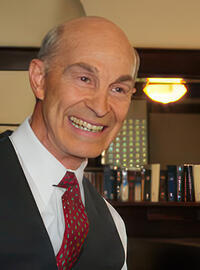The Study Group Symposium: Report on the Speeches
The Study Group Symposium: Report on the Speeches
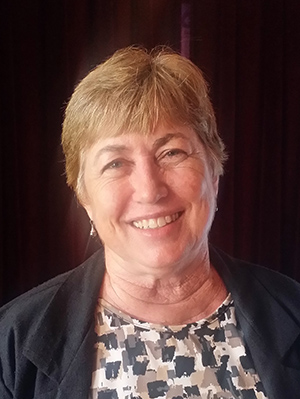
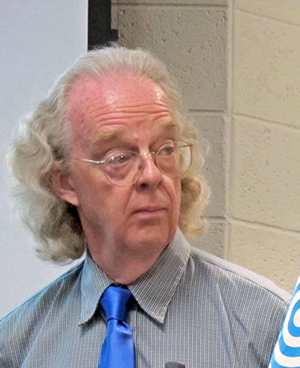
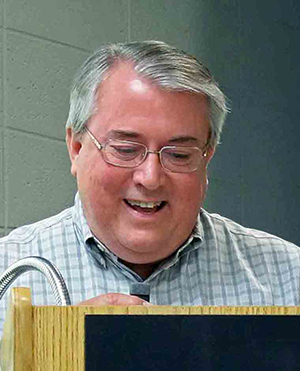
By Richard Keeler, trustee, Urantia Foundation, Evanston, Wyoming, United States
Urantia Association International sponsored the four-day Study Group Symposium in June. It was tailored especially for study group leaders.
Gaétan Charland of Québec, Canada gave the introductory speech.
He asked the question: Why have study groups? He read the instruction in the Publication Mandate that “thousands of study groups must be brought into existence.”
He also read the following excerpts from a 1981 letter from Emma Christensen, who was better known as Christy:
“One of our major jobs is the starting of many study groups. Thousands must be formed in order that we may have teachers and leaders prepared for the day when The Urantia Book and its teachings will need many friends scattered all over the world.
“Adam and Eve had been instructed to open what I call ‘beacons of light’ throughout the world through their offspring, but their default put an end to their doing so. I think that we might help them out a bit by encouraging study groups as we were told to do and by fostering them until they can stand on their own.”
Gaétan pointed out that fifty-nine years have passed since the publication of The Urantia Book. And we have 584 study groups worldwide: 383 in North America, 117 in South America, 50 in Europe, 17 in Africa, 9 in Asia, and 8 in Australia.
Of the 196 countries in the world, 30 have study groups.
“Our challenge,” said Gaétan, “is to align our study groups with ideals of the Publication Mandate.” (See https://www.urantia.org/urantia-foundation/history#pub for the Publication Mandate.)
Gaétan said, “There is no doubt in my mind that you and I, the hosts of study groups, are the most important leaders of the movement.” No single drop of water thinks it is responsible for the flood.
After Gaétan’s plenary speech, we broke into study groups of seven to eight persons to discuss and offer answers to prepared-in-advance questions.
David Kulieke gave the afternoon plenary speech of the first day. The title of his speech was “Effective Group Leadership.” According to David, study group leaders should have three major concerns:
- the enhancement―through prayer and worship―of the spirituality of the study group members;
- the enhancement of the quality of the study of the book; and
- the improvement of our sense of community.
David stated that “study groups are very, very important,” and that “study group leaders are very, very important in our pursuit of stronger community, progressing comprehension, and more real prayer and worship.”
After David’s presentation, we broke into afternoon study groups to discuss and possibly answer more prepared-in-advance questions.
Joycee Patterson was the plenary speaker on morning two of the symposium. “Carpe Diem” was the title of her speech. She pointed out that Gaétan’s speech focused on answering the question: Why have study group? She said that her speech focused on answering the question: How do we accomplish the directives of the Publication Mandate, which emphasizes seeking truth and righteousness. Such seeking, Joycee said, is spiritual, not intellectual. And she encouraged us to be mindful of the importance of maintaining a balance between the spiritual and the intellectual in our studies of the book. Prayer is less thinking and more realizing. According to The Urantia Book, “prayer is the most potent spiritual growth stimulus.”
Sheila Keene-Lund gave the day two afternoon plenary speech entitled “Do You Want to Change the World?” and subtitled “The Spiritual Attributes of Study Groups.” Sheila emphasized that one person plus one person working harmoniously on a project are more nearly like four persons as regards their attainment and accomplishment possibilities.
Sheila advocates prayerful and worshipful meditation before and after study group as a means of enhancing our LQ, that is, our love quotient. She quoted Jonathan Swift, the 18th century Irishman who wrote Gulliver’s Travel. “We have just enough religion to make us hate, but not enough to make us love one another.”
Doug Cable, the “Wandering Urantian,” told us about driving his camper hither and yon to visit study groups up and down the East Coast, over to Louisiana and Texas, and even up to the state of Washington. Doug had a list of about fifteen suggestions for study groups, among which were:
- Have a social period before and after the meeting.
- Have a prayer and worship segment of the meeting.
- Have a leader who sees that the group stays on topic.
- Conduct regional mini-conferences.
- Discuss transformation from beliefs to faith.
David Glass delivered a speech entitled “The Glorious Good News.” David said that “study group creation represents one of the preeminent means of service humanly available to us at this time.” David advocates:
- study group mission statements;
- visiting other study groups for cross-fertilization;
- periodic meetings between two study groups, and
- remembering that the most important aspect of a study group is the spiritual progress of the individual.
Georges Michelson-Dupont was the final speaker at the symposium. His speech was entitled “In-Depth Study Group Strategy and Practice.” He asked us: “Are we apostles, disciples, actors, or just spectators of the fifth epochal revelation?” We are responsible, Georges said, for the “fostering and promoting of the world-wide proliferation of efficient and attractive study groups.” Georges thinks that when study groups reach the critical mass of 12 or 13 members, they should split into two groups. Georges advocates that study group attendees read the text before the meeting, and he thinks that all-day study groups are very productive. For more information visit urantia.org/study/strategy-and-practice-in-depth-study-groups-urantia-book.
The Study Group Symposium, which began on Thursday morning, ended after lunch on Sunday.
(For symposium educational materials, motivational videos, photographs of Forum members, photographs of the symposium attendees, power-point presentations, publication mandate materials and videos, and speeches please request them at [email protected].)
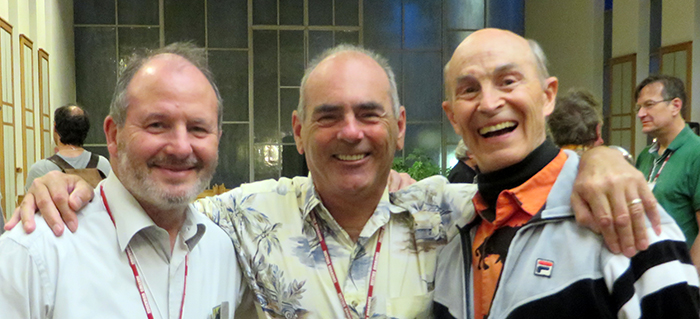
Georges Michelson-Dupont, Gaétan Charland and Richard Keeler
